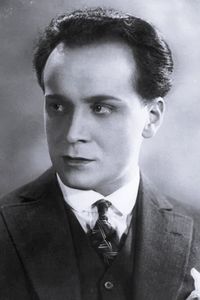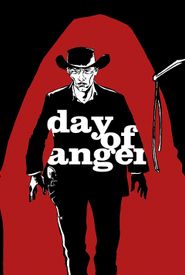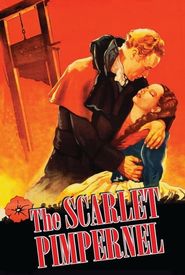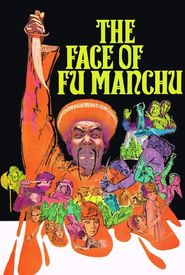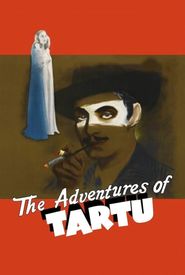Walter Rilla, a renowned character actor, stood out with his striking, expressively-browed, and rather stern-looking features. Educated at the University of Koenigsberg, Rilla began his career as a newspaper journalist, drama critic, and story editor for the Berliner Theater. He made his stage debut in 1921 and followed it up with his screen debut the next year.
Rilla quickly established himself as a leading player in German and French films, often portraying aristocratic roles that demanded a sense of gravitas. His involvement with leftist organizations and marriage to a Jewish wife, however, made it inevitable for him to flee Nazi Germany for England in 1933.
Rilla's breakthrough role in British films came courtesy of Alexander Korda, who cast him as Merle Oberon's brother Armand in The Scarlet Pimpernel (1934). This was followed by roles as Prince Ernest in Herbert Wilcox's period drama Victoria the Great (1937),and as the womanizing banker Roudine in False Rapture (1939).
After gaining British citizenship in 1940, Rilla found himself typecast, much like his compatriots Conrad Veidt and Peter van Eyck. His career was henceforth defined by playing racketeers, Nazi propagandists, and evil Eastern European potentates in films like Golden Salamander (1950),The Lisbon Story (1946),and The Great Manhunt (1950).
In addition to acting, Rilla also authored several BBC radio shows. Following his return to Germany in 1957, he began a new career behind the camera as a writer/director of television plays. He continued to act in a wide range of films, including prestige pictures like Confessions of Felix Krull (1957) and Scampolo (1958),spaghetti westerns like Day of Anger (1967),Edgar Wallace potboilers like The Forger of London (1961),and returning to his villainous ways as the evil genius Dr. Mabuse in several instalments of the popular franchise.
In 1966, Rilla was awarded the prestigious Filmband in Gold for his service to the German film industry.
